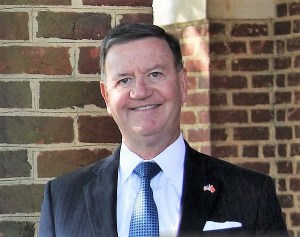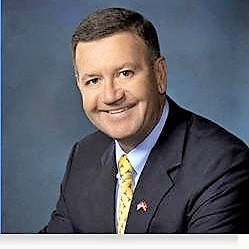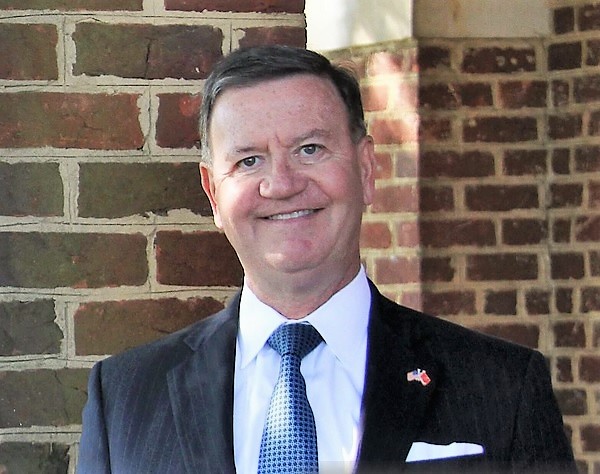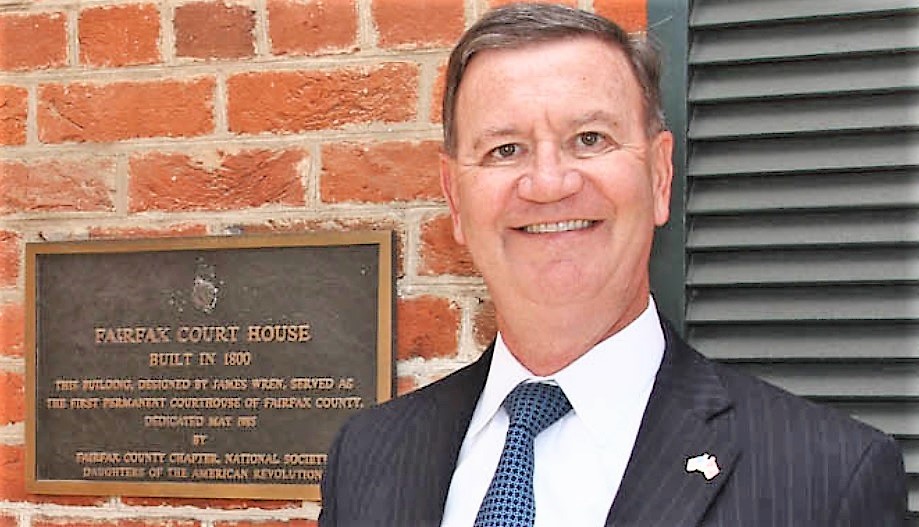
Michael L Avery Sr, lawyer
Plaintiff Harold Leonel Pineda Lindo, a citizen and resident of Nicaragua, began employment with NCL Ltd., a Bermudan corporation with its principal place of business in Miami, Florida. In December 2008, Lindo claims that he injured his back while on board one of NCL’s vessels while acting within the scope of his employment, later requiring surgery for his personal injury. Lindo’s employment contract with NCL was governed by a collective bargaining agreement. The contract also states that all personal injury and Jones Act claims would be resolved by binding arbitration pursuant to the United Nations Convention on Recognition and Enforcement of Foreign Arbitral Awards. The contract stated that the place of arbitration would be the place of the employee’s citizenship, unless arbitration is unavailable under the Convention in that country, in which case it shall take place in Nassau, Bahamas. The choice of law would be that of the flag state of the vessel (Bahamas).
Lindo challenged having arbitration, arguing that the claim would arise under Bahamian negligence law, not the Jones Act. Lindo then filed a lawsuit in Florida state court. NCL moved to compel arbitration and removal to federal court. Lindo amended his complaint to allege a single count of Jones Act negligence. The district court granted NCL’s motion to compel arbitration and dismissed Lindo’s amended complaint. Lindo appealed.
The United States Court of Appeals for the Eleventh Circuit affirmed the district court’s order to compel arbitration of Lindo’s Jones Act negligence claim. The Court began by evaluating the New York Convention. This Convention recognizes written arbitration agreements concerning subject matter capable of settlement by arbitration. Both Nicaragua and the Bahamas are signatories to the Convention. Both parties agree that the Convention applies to Lindo’s contract.
After reviewing the Convention and Supreme Court and circuit court precedent, the Court concludes that the district court properly enforced Lindo’s arbitration agreement and rules that the Jones Act claims must be arbitrated in a foreign forum (Nicaragua) under Bahamian law. The Court notes that there is a strong presumption in favor of freely negotiated contractual choice of law and forum selection provisions. The presumption applies greatly with regard to international commerce. “Indeed, the Convention provides that contracting states ‘shall recognize’ written agreements wherein parties agree to submit any and all disputes to settlement by arbitration. New York Convention, art. II(1). This Circuit has stated, in agreement with other circuits, that ‘a court conducts a very limited inquiry’ when ‘deciding a motion to compel arbitration under the Convention Act.’ Bautista v. Star Cruises, 396 F.3d 1294 (11th Cir. 2005) (quotation marks omitted).” 652 F.3d 1275.
Next, the Court evaluates whether a null‑and‑void defense would apply to the arbitration agreement, thereby making it inoperable. “In Bautista, this Court held that an arbitration agreement is null and void under Article II(3) of the Convention only where it is obtained through those limited situations, ‘such as fraud, mistake, duress, and waiver,’ constituting ‘standard breach‑of‑contract defenses’ that ‘can be applied neutrally on an international scale.’ 396 F.3d at 1302 (quotation marks omitted). Lindo’s Contract incorporates a union‑negotiated CBA, and there is no claim—much less any showing—of fraud, mistake, duress, or waiver. To the extent Lindo relies on Article II, his claim fails.” 652 F.3d 1276.
“Lindo argued that the arbitration provision is unconscionable, maintaining that he signed the Contract on a “take‑it‑or‑leave‑the‑ship” basis. However, this was the same argument asserted by the plaintiff seamen in Bautista. . . . This Court expressly rejected that argument, concluding that an unconscionability defense was not available under Article II of the Convention.” 652 F.3d 1276.
Another defense to arbitration enforcement is one based the public policy of the United States under Article V of the Convention. The Court states that this defense does not apply because Article V only applies at the arbitral award‑enforcement stage, not at the arbitration‑enforcement stage at issue here. “Article V expressly provides, ‘Recognition and enforcement of an arbitral award may also be refused if the competent authority in the country where recognition and enforcement is sought finds that … [t]he recognition or enforcement of the award would be contrary to the public policy of that country.’ New York Convention, art. V(2) (emphasis added). Yet, Article V has no application in the interlocutory procedural posture of this case, where NCL seeks to enforce arbitration at the outset of the dispute.” 652 F.3d 1280.
Lastly, the Court denies Lindo’s arguments against the enforcement of the arbitration agreement, stating that “Lindo’s challenge to his arbitration agreement fails because (1) Bahamian law itself recognizes negligence actions; and (2) even if, as Lindo claims, U.S. law under the Jones Act has a more relaxed causation standard for negligence claims than Bahamian law, these were precisely the same arguments lodged (and rejected [by this Court]) in [Lipcon v. Underwriters at Lloyd’s, London, 148 F.3d 1285 (11th Cir.1998)].” 652 F.3d 1283.
In Lipcon, the Court held “that the choice‑of‑law and forum‑selection clauses were enforceable and ordered the matter to be heard in English courts under English law, since we will declare unenforceable choice clauses only when the remedies available in the chosen forum are so inadequate that enforcement would be fundamentally unfair.” 652 F.3d 1283 (internal citation omitted).
“In Lindo’s case, the arbitration clause, if anything, is fundamentally fair for several reasons. For starters, the clause is part of a union‑negotiated collective bargaining agreement. The fact that the Jones Act claim was expressly referenced in that CBA is clear indication that this type of claim was expressly considered during the negotiation process. Lindo cannot obtain the advantages of his union‑negotiated Contract, while rejecting what he now perceives as its disadvantages. This union‑negotiated agreement is enforceable and valid even if it waives Lindo’s U.S. statutory claim under the Jones Act.” 652 F.3d 1284.
“Lastly, Lindo’s position would effectively eviscerate the mutually binding nature of the Convention. Lindo maintains that his arbitration agreement is void as against public policy because he cannot assert his U.S. statutory rights under Bahamian law. By this logic, courts in other nations could likewise refuse to recognize valid, mutually agreed‑upon arbitration provisions if they contemplated the application of American law, in derogation of home‑based statutory remedies. Yet if every country refused to recognize arbitration agreements that contemplate the application of foreign law, the multilateral commitment of the Convention would be defeated.” 652 F.3d 1284.
Citation: Lindo v. NCL (Bahamas), 652 F.3d 1257 (11th Cir. 2011).
Michael L. Avery, Sr.
Michael Leon Avery, Sr., personal injury attorney in Fairfax, Virginia. Michael Avery has over 20 years of experience in advocating for clients who have been injured in a wide array of accidents—from car and truck accidents to bicycle crashes to accidents caused by drunk drivers.
He became a lawyer after a distinguished career in the U.S. Marine Corps. Former Captain Michael L. Avery, Sr. was born in Long Beach, California on January 5, 1959, but grew up in Natick Massachusetts. After graduating from Ohio Wesleyan University with a B.A. degree in History and Politics and Government, Michael Avery attended Officer Candidate School and was commissioned a Second Lieutenant on December 18, 1981. Upon completion of The Basic School, he was selected for assignment as an infantry officer and attended Infantry Officers Course in Quantico, Virginia. After graduation from IOC he was assigned to 2nd Battalion, 7th Marines at Camp Pendleton as a Rifle Platoon Commander in Golf Company. While assigned to Golf 2/7, Second Lieutenant Avery participated in Operation Colonel Potlatch in the Aleutian Islands as a Rifle Platoon Commander and Team Spirit as a Weapons Platoon Commander. During the battalion’s overseas deployment to Okinawa in 1983, then First Lieutenant Avery attended and successfully completed Naval Gunfire School in the Philippines. Following the 2/7’s overseas deployment, 1st Lt. Avery was assigned as the 81mm Platoon Commander for 2/7.
First Lieutenant Avery was augmented as a regular officer in August of 1983 and selected for assignment to recruiting duty at 12th Marine Corps District on Treasure Island, San Francisco, California. His initial duties were as a Contact Team Officer and serving as a “floating” Operations Officer for various Recruiting Stations including RS Portland and RS Seattle. Then First Lieutenant Avery was reassigned as the Executive Officer of Recruiting Station San Francisco where he completed his assignment on recruiting duty in August of 1987. Promoted to Captain, he was assigned to 3rd Landing Support Battalion in Okinawa Japan as the S-3A. At 3rd LSB he was detailed as augment S-4 for 35th MAU only five weeks prior to deployment for Exercise Balikatan. Working outside his MOS, he successfully completed the planning and coordination of combined ship and air embarkation and Combat Service Support plans for a MAU sized operation. Upon his return to 3rd LSB, he was reassigned to 9th Marines for Team Spirt as part of the regimental staff. Following Team Spirt, then Captain Avery served as the S-3 for 3rd LSB prior to his selection to attend Amphibious Warfare School. Upon his successful graduation from AWS, Captain Avery resigned his commission to attend law school at the American University Washington College of Law.
Michael L. Avery, Sr., Esq. is proud to have served as an Infantry Officer and a Captain in the United States Marine Corps. He lives by the motto: Semper Fidelis, or Semper Fi, which means “always faithful”. He believes deeply in the justice clients deserve and works hard to achieve it case after case.
Contact
Michael L. Avery, Sr., Esquire
The Avery Law Firm
10382 Democracy Lane | Fairfax, Virginia 22030
P: 703-462-5050 F: 703-462-5053
Website: https://semperfilawyer.com
Practice Areas
* Auto Crashes
* Vehicle Rollovers
* Motor Vehicle Fatal Injuries
* Commercial Vehicle Accidents
* Uninsured / Underinsured Motorist
* Claims
* Distracted Driver Accidents
* Road Rage
* Truck Accidents
* Hit-and-Run Accidents
* DUI Accidents
* Passenger Injuries
* Motorcycle Accidents
* Bicycle Accidents
* Pedestrian Accidents
* Slip and Fall
* Personal Injury
Experience
Since 1998, Michael Avery has been the principal attorney of The Avery Law Firm in Virginia. Previously, from 1981 to 1992, Mr. Avery served in the U.S. Marine Corps, and achieved the rank of Captain.
Education
Mr. Avery received his Juris Doctor (J.D.) from the American University, Washington College of Law, in Washington, DC in 1994. Prior to his law studies, he graduated from Ohio Wesleyan University with a B.A. in History & Politics in 1981.
References
Law Firm Website: https://averyassociateslaw.com/
Blog: https://averyassociateslaw.com/blog/
Blog: https://michaelaveryesq.law.blog
News: https://attorneygazette.com/michael-avery%2C-virginia
News: https://hype.news/michael-avery-esq
Attorney Profile: https://solomonlawguild.com/michael-avery%2C-attorney
LinkedIn Profile: https://www.linkedin.com/in/michael-l-avery-sr-6b02012/






